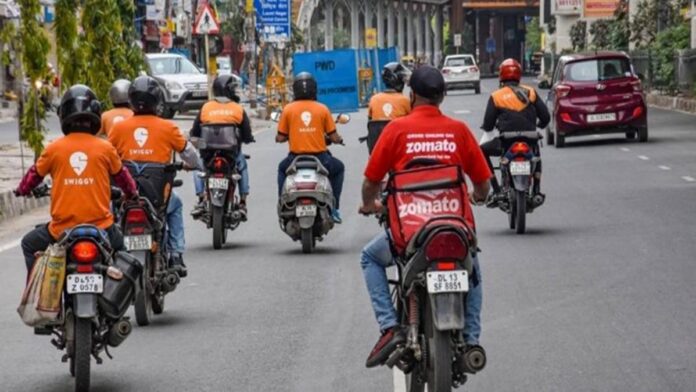India’s gig economy is poised for a major leap in 2025, with the hiring of gig workers in the quick commerce sector projected to rise by an unprecedented 60% compared to 2024, according to industry experts.
The surge comes as leading e-commerce players like Amazon, Flipkart, and Myntra enter the quick commerce space, while existing players such as Blinkit, Swiggy Instamart, and Zepto scale up operations aggressively.
Also ReadJockey India licensee Page Industries appoints Karthik Yathindra as CEO
Quick commerce relies heavily on gig workers for two key roles: “under-the-roof” staff who manage operations at dark stores, and delivery agents who ensure fast doorstep service. Typically, each dark store employs 30-35 under-the-roof workers, such as loaders, pickers, and packers, supported by 120-140 delivery personnel to meet demand.
Also Read Record job applications show women and youth driving employment boom, says ‘India at Work 2024’ report Unincorporated sector adds 11 million jobs in 2023-24 Fresh hikes to test FMCG pricing power Indian data centre capacity expected to more than double by FY27 on rising demand, penetration of GenAI
“The top five quick commerce players – Blinkit, Instamart, Zepto, BigBasket, and Flipkart Minutes – currently employ around 70,000 under-the-roof workers and 250,000–300,000 delivery partners,” said Balasubramanian A, senior VP and business head at TeamLease. “This workforce of approximately 350,000 is set to grow by at least 60% in 2025,” he added.
The hiring boom will primarily be driven by the expansion of dark stores, fueled by new entrants and increased investments from established players. As the sector forays into Tier II and III cities, the demand for gig workers is expected to skyrocket.
“There will be a record increase of 100% in gig employment in smaller cities, where quick commerce operations are being set up from scratch,” said Roma Puri, associate professor of organisational behaviour & HR at IMI Kolkata.
Sheila Roy, associate professor of operations and supply chain management at SP Jain Institute of Management and Research, underlined the need for additional staffing. “Each new dark store requires significant hiring to support fulfillment and delivery operations,” she said.
The rapid expansion mirrors the broader growth of India’s gig economy. Between 2019 and 2024, the gig workforce saw a compound annual growth rate of 14–15%,
» Read More


